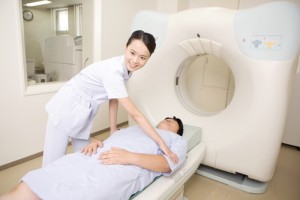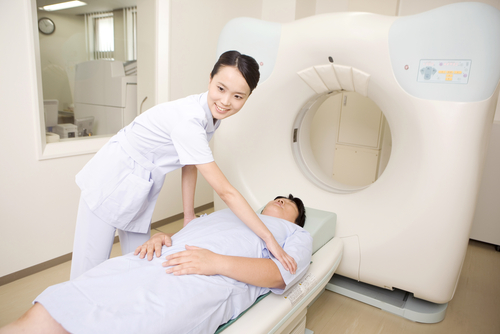 Medicare is expected to announce a decision this Monday, November 10 on the coverage of computed tomography (CT) lung cancer screening, the first and currently only diagnostic test already proven effective in preventing lung cancer. If Medicare announces the full coverage of the test for high risk seniors, not only may it be a major step in supporting the struggle to fight lung cancer as the leading cancer killer in the United States, but it would also be an historic decision during this year’s Lung Cancer Awareness Month.
Medicare is expected to announce a decision this Monday, November 10 on the coverage of computed tomography (CT) lung cancer screening, the first and currently only diagnostic test already proven effective in preventing lung cancer. If Medicare announces the full coverage of the test for high risk seniors, not only may it be a major step in supporting the struggle to fight lung cancer as the leading cancer killer in the United States, but it would also be an historic decision during this year’s Lung Cancer Awareness Month.
A major campaign has been conducted by medical professionals, public health leaders, associations, and advocates to support the cause and ask the Centers for Medicare & Medicaid Services (CMS) to fully cover the diagnostic method. The American College of Radiology Lung Cancer Screening Center program is responsible for assuring the safety and effectiveness of lung cancer screening, as the need for providing the exam are growing.
“Medical experts and patient advocates have outlined to Medicare the infrastructure and quality assurance programs in place. Questions regarding CT lung cancer screening effectiveness cost and patient acceptance are answered. It is time for Medicare to move forward with full coverage” stated Ella Kazerooni M.D. FACR, who serves as chair of the American College of Radiology Lung Cancer Screening Committee and American College of Radiology Thoracic Imaging Panel.
[adrotate group=”3″]
ACR Lung-RADS standardizes CT lung cancer screening, aiding in lung CT interpretation in addition to supporting the motorization of lung cancer screening outcomes. CT lung cancer screening is a diagnostic exam that can even be effective in patients older than 65 years, in addition to being proven as a cost-effective test for both Medicare and privately-insured patients.
A recent study conducted by investigators at the National Cancer Institute reaffirmed the effectiveness of CT scans due to questions being raised by Medicare regarding older patients, as the exams cost between $100 and $400, and the current health-care law does not require Medicare to cover them. The study demonstrated that the lung cancer test is also beneficial in the early detection of heavy smokers older than 65 years, after a first study that demonstrated the higher probability of older patients to register false-positives, as well as to develop the disease. Despite this, both of the studies recommended the full coverage of the exam from Medicare.
“Lung cancer takes more lives each year than breast, prostate, and colon cancer combined. As such, CT lung cancer screening can save more lives than any single cancer test in history,” believes the president and chief executive officer of the Lung Cancer Alliance, Laurie Fenton Ambrose. “However, Medicare must ensure access to these exams by providing full coverage for them.”
“More than 220,000 people will be diagnosed with lung cancer this year. Nearly 160,000 people will die from the disease. Armed with this proven test and the access to these exams that full Medicare coverage would provide, we can save tens of thousands of these people,” added Douglas E. Wood M.D. immediate past president of The Society of Thoracic Surgeons.
The United States Preventive Services Task Force (USPSTF) had also previously recommended the use of lung cancer screening in high-risk Medicare beneficiaries, adults aged 55-80 who have a 30 pack-year smoking history and currently smoke or have quit within the past 15 years, revealing that the test was cost effective. The test is more effective than other screening programs, and has statistically shown that it saves more lives than automobile seat belts or airbags, according to a review conducted by USPSTF in collaboration with Milliman, Inc., based on National Lung Screening Trial data.
“I would encourage your agency to give a timely and fair review to determining whether low-dose computerized tomography (CT) scans should be covered by Medicare for patients at high-risk for developing lung cancer,” the senator wrote. “Ensuring Kentucky’s seniors have access to innovative diagnostic tools and treatment options should be a priority. Therefore, I ask that CMS review all of the available information and make an informed, timely decision regarding the Medicare coverage of low-dose CT scans for high-risk individuals.”

